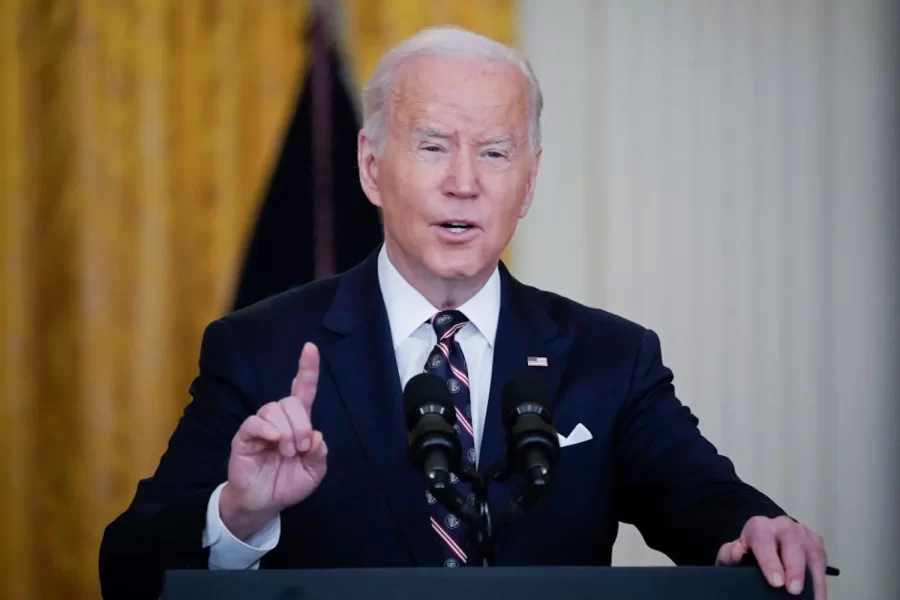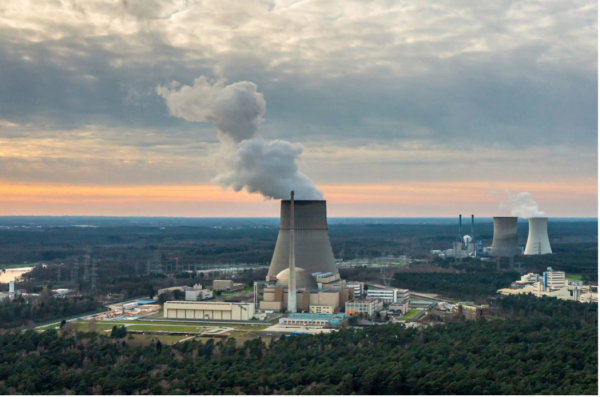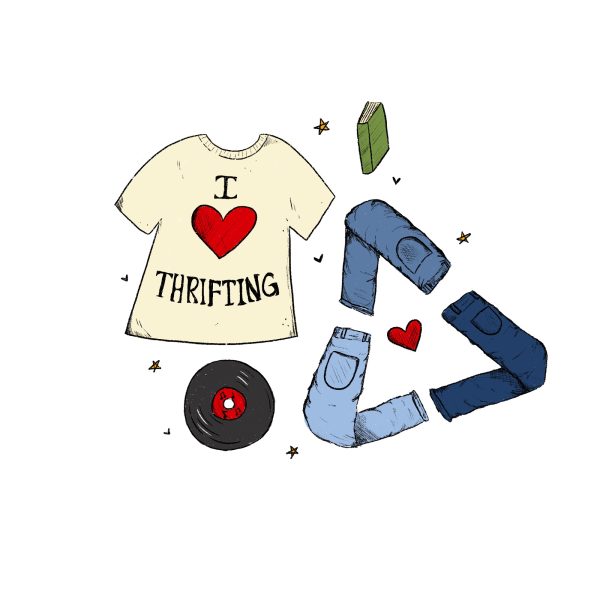Are sanctions effective?
Sanctions are a commonly used tool in foreign policy, but many debate whether the costs outweigh the benefits
President Joe Biden announces new sanctions against Russia in February.
October 16, 2022
In February 2022, Russia declared war on Ukraine. Ukraine’s westernization over the past decade has made them a close ally of the United States and the European Union, which created security threats for Russia. The formal reason for Russia’s war was to “demilitarize and de-Nazify Ukraine,” claiming Ukrainian subjects were being oppressed by the democratically elected government. Despite opposing the outrageous claims made by Vladimir Putin and Russia, the United States sought to maintain its neutrality because Ukraine was not in NATO and did not have a security agreement with the United States. The United States did, however, take action through sanctions and economic warfare. Though the effectiveness and successes of the economic sanctions may have varied, their force and influence over time are the best way for the United States to take action at this time.
For decades now, economists and policymakers have debated the effectiveness of economic sanctions. As one report done by the International Institute of Social Studies says, “success and failure of economic sanctions has a cyclical pattern with waves of optimism followed by pessimistic views on the effectiveness and usefulness of boycotts, embargos, financial sanctions, and targeted, smart sanctions.” While the effectiveness of sanctions is difficult to properly pinpoint, it can be assumed that over time, sanctions add more pressure to a country’s economy. Since the start of the Russia-Ukraine War, it is expected by the World Bank that the Russian GDP dropped by 11%, the largest drop since the fall of the Soviet Union. While the United States and European states continue to see a slight inflation of prices in the oil and gas industries, it is nothing relative to the economic crisis being seen in Russia. There is obvious turmoil. The country is a bubble waiting to pop. Without Russian firms or banks bringing in any sort of foreign currency from the European Union and the United States, the Russian economy is beginning to collapse as inflation rises to nearly 17.1% according to BBC. The outward perception of Russia proving resilient is simply a facade shielding the truth of unsafe inflation and a lack of currency.
Do not be mistaken, however, sanctions have hurt the Russian economy, yet not to the extent that many experts had believed they would. According to the International Monetary Fund (IMF), they now expect the Russian GDP to shrink six percent rather than the 15% that was initially expected at the beginning of the war. Furthermore, such sanctions continue to have a detrimental impact on western economies: worrying some that they may slide into a recession due to the inflation caused by a rise in oil prices. Natural gas prices have risen nearly 20% since the beginning of the war, causing a strain on much of the European population that relies on it. While sanctions are expected to have their desired force in the future, the question becomes: how much longer Western economies endure? As time passes, Russia will begin to adapt to circumstances. They have already increased their exports to the United Arab Emirates. Dubai has been brimming with Russian cash and they continue to arrange flights to Moscow daily. The fact of the matter is that the global economy, while it will be initially shocked, will adapt. Russia will find more consumers, primarily in the East, with countries like China. While western economies struggle to find alternatives for important Russian exports such as natural gas, China and Russia have adapted and created a stronger economic relationship. Based on your view of economics, you may think that this destabilizes the United States’ position in the East both economically and politically.
So is that it? Are we just generally screwed by sanctions? Not quite.
Economics is a multidimensional game of chess. What sacrifices do we make for our well-being in the future? How can we predict the game and limit the opportunities for countries such as Russia whose ruthless war has killed thousands of innocent people and displaced millions? Taking down a country’s economy through sanctions is difficult. Russia has a strong economy: low external debt and an abundance of foreign exchange reserves. However, the United States and western governments are taking an active and aggressive stance within their sanctions. They have targeted Russian oligarchs and used anti-mafia laws to prosecute them: an option that the Russian government is usually unable to retaliate against. Furthermore, Jeffrey Sonnenfield, a renowned professor of Economics at Yale University, explains that as time passes, international companies will begin to see that conducting business in Russia is not beneficial to their company. A perfect example of this would be Mcdonald’s. Although it is not a crucial company, Mcdonald’s closed all locations in Russia. While Mcdonald’s was quickly replaced in certain locations by other companies simply copying Mcdonald’s, it is proven to not be as financially valuable to Russia. International businesses want to please their customers and appeal to them. The public has a duty to hold international companies to a high standard and morals so they conduct business in a way to promote peace and human rights.
The war with Russia is far from over. Once the war is declared to be over, economic warfare through sanctions will continue. The reintroduction of Russia back into our economic system will take years. Whether or not sanctions will work sufficiently is a matter of time. It is important to recognize though, while we perceive the war to be an economic cost and a cost in inflation and oil prices, the true cost is human life. While this may often be overlooked within our political and economic debates, it is important to keep in mind the perspectives of the millions of people in Ukraine.























